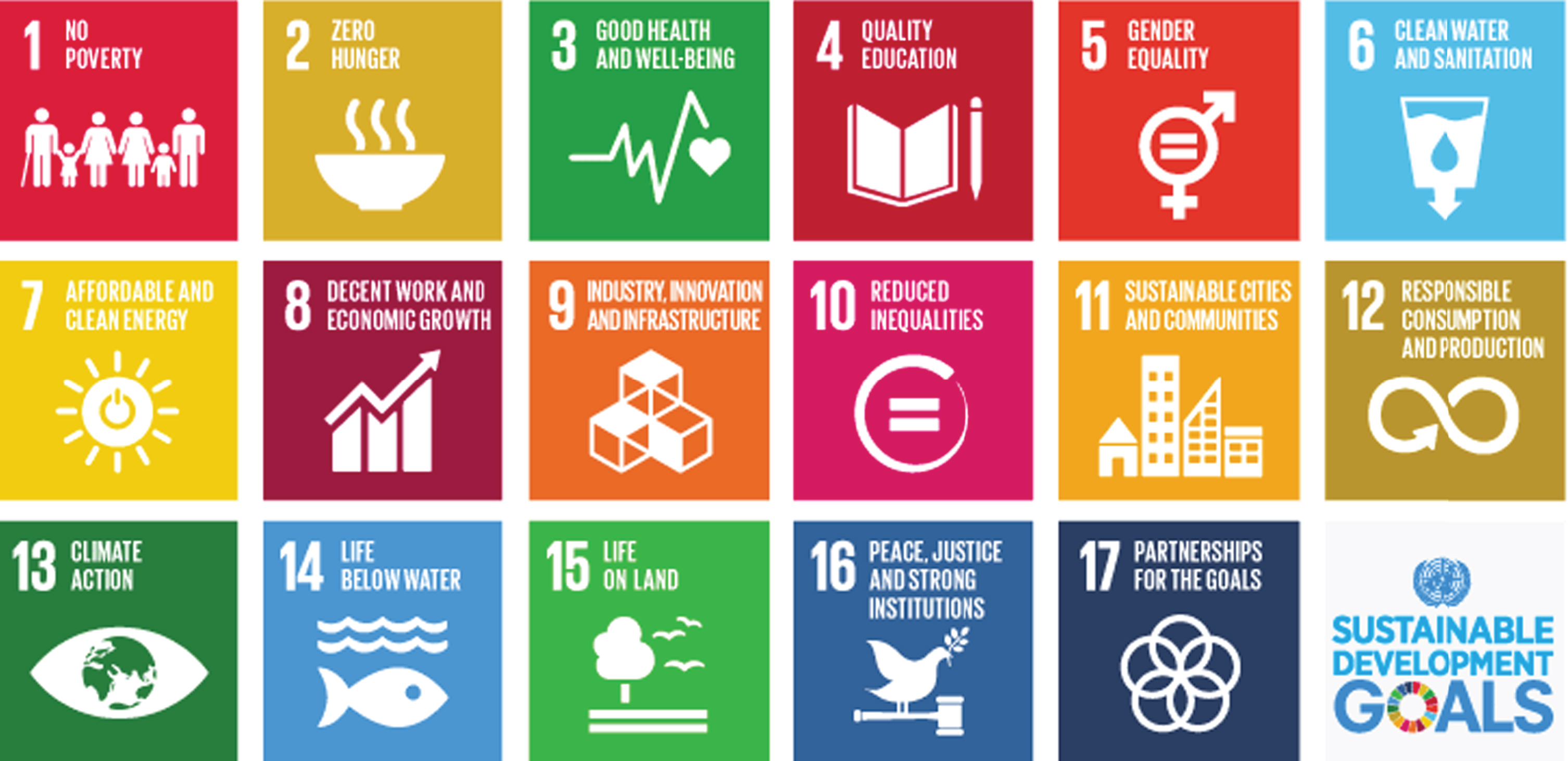Helping to make the world a better place through the Sustainable Development Goals (SDGs)
“Do you think the world will be a better place next year? In the next decade?” These are the questions that Michael Green shared in his Ted Talk, How We Can Make the World a Better Place by 2030 (https://www.youtube.com/watch?v=o08ykAqLOxk). This Ted Talk was about seven years ago when in 2015, all United Nations (UN) Member States adopted the 2039 Agenda for Sustainable Development which “ … provides a shared blueprint for peace and prosperity for people and the planet, now and into the future. At its heart are the 17 Sustainable Development Goals (SDGs), which are an urgent call for action by all countries - developed and developing - in a global partnership (see Fig. 1). They recognize that ending poverty and other deprivations must go hand-in-hand with strategies that improve health and education, reduce inequality, and spur economic growth – all while tackling climate change and working to preserve our oceans and forests” (https://sdgs.un.org/2030agenda).
Fig. 1
17 sustainable development goals.

IOS Press became a member of the UN’s SDG Publishers Compact in December 2020. As the publisher shares, “In doing so, the company committed to develop sustainable practices and act as champions of the SDGs, publishing books and journals that will help inform, develop, and inspire action in that direction” (iospress.com/sustainable-development-goals).
As the founding Editor-in-Chief of WORK, I receive a yearly report with information about the SDGs specific to the journal and actions that foster this initiative. I am delighted to share that WORK supports and publishes about 15 of the 17 SDGs and we will strive for 100% in the future. On workjournal.org/work-and-sdgs we will regularly share updates. Here are some highlights:
Research reveals that women are often underrepresented at board level [1] and in the peer-review process [2]. The editorial board of WORK is predominantly female, which breaks the trend for the majority of IOS Press journals. As for the future, we will strive to use keywords that correctly identify the SDG-related themes impacted by each article and will encourage the development of special issues that explicitly advance one or more of the SDG-related themes such as an upcoming special issue that addresses SDG #13 climate action titled, Work, Health, and Meaningful Occupation in the Age of Climate Change being developed by co-guest editors Teresa Stock, OT, OTD, OTR, MBA, Kelly Isabelle DeMarco, OT, BS, OTR, NBC-HWC, and Carol Myers, OT, BS, MA, OTR, HWC. You can find the call for papers for this and other special issues at workjournal.org/call-for-papers.
This issue has 35 papers which address SDGs goals #3 good health and wellbeing; #4 quality education; #5 gender equality; #8 decent work and economics growth; and #9 industry, innovation, and infrastructure.
The Editor’s Choice paper is the Impact of workplace yoga on pain measures, mental health, sleep quality, and quality of life in female teachers with chronic musculoskeletal pain: A randomized controlled study authored by Kashinath G Metri et al. This paper supports the SDGs #3 good health and well-being. The authors suggest from their study of 50 teachers that “Workplace yoga intervention is found to be effective in improving pain, pain disability, mental health, sleep quality among female teachers with chronic musculoskeletal pain. This study strongly recommends yoga for the prevention of work-related health issues and for the promotion of wellbeing among teachers”.
This issue includes a special section titled, Gender, Transport and Employment, which addresses SDGs #5. As the Guest Editor, Andree Woodcock shared that these “ … papers demonstrate the ways in which gender inequalities in transport effect women’s livelihoods, their health and wellbeing, and point to a number of ways in which inequalities could be reduced”. My gratitude to Andree for her leadership with this important section.
Our upcoming Learn at WORK webinars are:
October 19 at 1-2pm EST on factors contributing to financial distress in young adults with cancer. The presenters are Drs. Rhonda Robert and Teresa Granger. Registration: https://attendee.gotowebinar.com/register/5677821302932403549.
December 5 at 12-1pm EST Stefan Celine Hardonk and Álfheiethur (Heietha) Hafsteinsdóttir will present their Editor’s Choice paper titled, Understanding work inclusion: Analysis of the perspectives of people with intellectual disabilities on employment in the Icelandic labor market. Registration: https://attendee.gotowebinar.com/register/5373083958842751062.
Please stay up to date on our Learn at WORK webinars, blogs, and news by going to our website at workjournal.org.
As always, I welcome hearing from you.

Founding Editor, WORK
Occupational therapist & ergonomist
References
[1] | Julie KS Gender equity on journal editorial boards, The Lancet. (2019) . https://doi.org/10.1016/S0140-6736(19)31042-6 |
[2] | Markus H , Manuel S , Andreas N , Demian B Research: Gender bias in scholarly peer review, eLife. (2017) . https://doi.org/10.7554/eLife.21718 |




